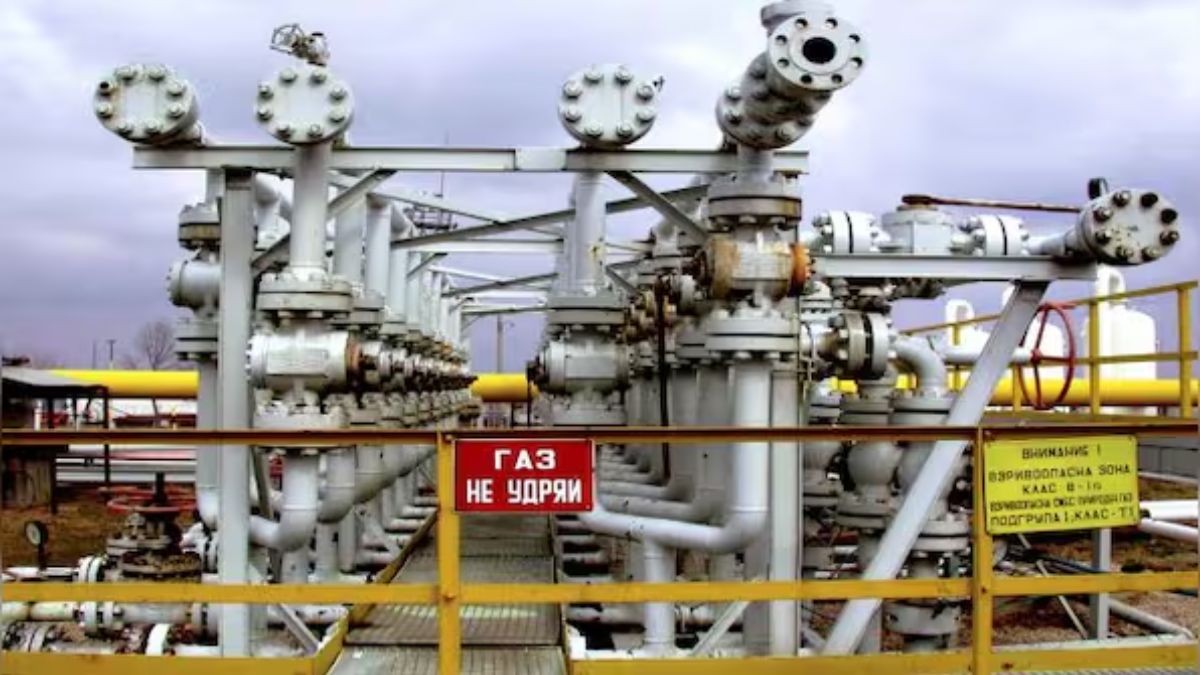Russian gas transit to Europe via Ukraine came to a halt Wednesday (January 1), officials from both countries said, ending a decades-long arrangement and becoming the latest fallout of the war between the two neighbours.
The latest transit contract between Kyiv and Moscow expired Wednesday, with Ukraine opting not to renew the agreement in light of the ongoing Russia-Ukraine war.
What Ukraine, Russia said
Ukraine’s Energy Minister German Galushchenko hailed the move as a “historic event,” saying it would weaken Russia financially and deal a blow to its military efforts.
Moscow, however, characterised the decision as self-sabotage by Kyiv, suggesting it would frustrate European countries reliant on Russian supplies.
Divided opinions in Europe
The move has divided opinion within the European Union. While Poland welcomed the development as a step forward for Europe’s energy independence, Slovakia strongly criticised it. Slovak Prime Minister Robert Fico warned the decision would harm the EU more than Russia.
“Halting gas transit via Ukraine will have a drastic impact on us all in the EU but not on the Russian Federation,” Fico said in a video posted to Facebook. Fico, who has steered Slovakia closer to Moscow since regaining power in 2023, said the region would bear the brunt of the disruption.
Poland, a staunch supporter of Ukraine and no longer reliant on Russian gas, expressed a different view. Foreign Minister Radoslaw Sikorski praised the move on X, calling it “a new victory after Nato enlargement to Finland and Sweden.”
Hungary, meanwhile, is expected to face little impact, as it receives most of its Russian gas through the Black Sea pipeline, which bypasses Ukraine via Turkey and the Balkans.
The European Commission downplayed the significance of the supply cutoff, saying contingency plans have been in place for over a year. “The Commission has been working for more than a year specifically on preparing for a scenario without Russian gas transiting via Ukraine,” a spokesperson told AFP.
Impact Shorts
More ShortsRussian gas accounted for less than 10 per cent of the EU’s total imports in 2023, a sharp decline from over 40 per cent before Moscow’s invasion of Ukraine in 2022.
However, some eastern EU members remain dependent on Russian energy, and European natural gas prices spiked above €50 ($51.78) per megawatt-hour on Tuesday (December 31) as buyers prepared for the supply halt.
Russia redirecting focus
Since the collapse of the Soviet Union in 1991, the arrangement had provided Moscow with revenues from gas sales and Kyiv with transit fees.
Ukraine has repeatedly criticised countries that continue to buy Russian oil and gas, accusing them of funding the war. Energy revenues remain a key pillar of Russia’s economy, and Moscow has redirected much of its exports toward Asia in response to Western sanctions
)